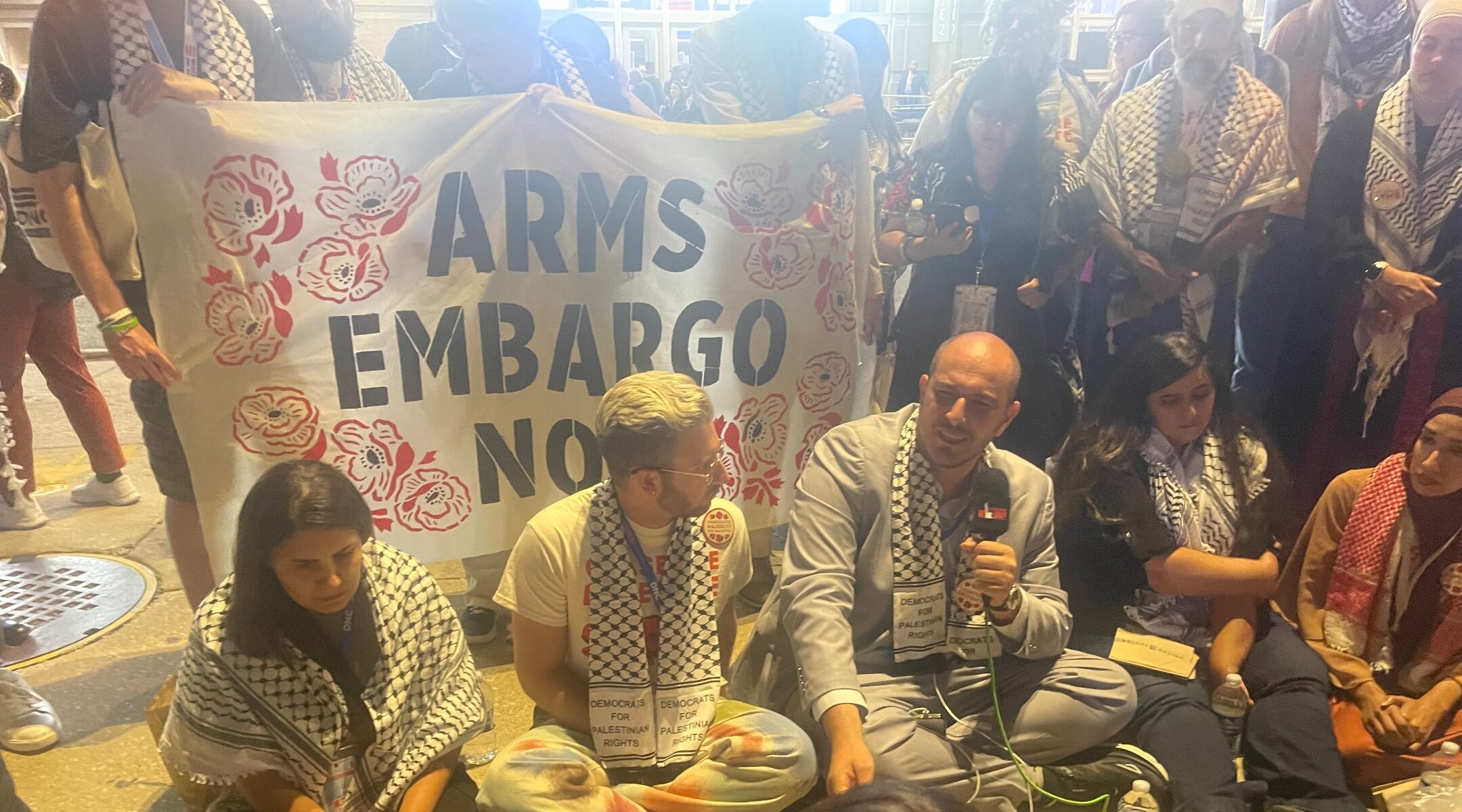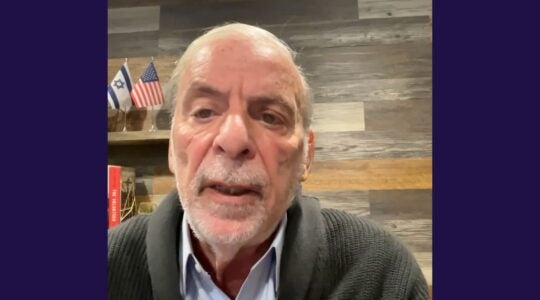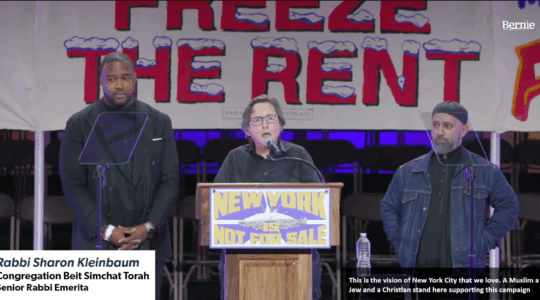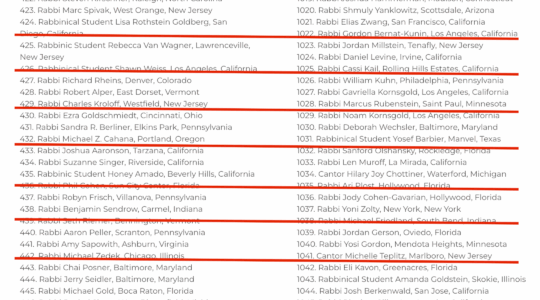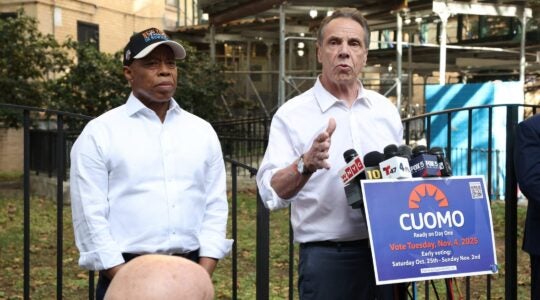CHICAGO — The Democratic National Convention is denying a speaking spot to a group of pro-Palestinian delegates, a decision it confirmed after the parents of an Israeli-American hostage, Hersh Goldberg-Polin, delivered an address that brought the convention to a standstill.
The delegation of activists belongs to “Uncommitted,” the movement that calls for an end to the Biden administration’s support for Israel’s military campaign in Gaza. They protested the decision by staging a sit-in outside the convention center that lasted into the early hours of Thursday morning.
Uncommitted, named for the protest votes cast in Democratic primaries this year, is represented by 30 or so delegates out of nearly 4,000 at the DNC.
“‘No’ is not an unacceptable response, they need to reconsider,” said Abbas Alawieh, the Michigan delegate who founded Uncommitted. “We’re asking for something very reasonable, for a Palestinian American to speak on stage.”
The dispute over a Palestinian American on the main stage ties together two strands of discourse among Democrats: the longstanding emphasis on providing a platform to a range of demographics and constituencies, and the debate over the Israel-Hamas war that has occupied the party this year in particular.
Following the DNC’s announcement, pro-Palestinian activists are continuing to call for a speaking slot — and they’re being joined by prominent Jewish names, including a relative of an Israeli hostage held in Gaza.
“Rachel and Jon deserved every second on that stage,” wrote Alana Zeitchik, whose cousin, Sharon Alony Cunio, was taken captive with her family, referring to Goldberg-Polin’s parents. “I also believe a Palestinian American voice deserves to be heard on that stage.” Cunio and her children were released in November. Her husband remains captive.
In their talk, Rachel Goldberg and Jon Polin called for a ceasefire, noting the relief it would bring not just to the families of hostages still held by Hamas, but to Palestinians in Gaza, lines that earned massive applause. Their appearance marked a tonal shift at a convention whose main stage had kept references to the war to a minimum as it continues to stoke tensions within the party. Many attendees stood for the length of their speech, and the crowd chanted “Bring them home.”
For an Israeli official, who said Israel’s government dreaded the convention going in, the address by the Goldberg-Polins combined with the denial of a Palestinian speech on stage was the best possible outcome.The official credited Democratic leaders for not giving the pro-Palestinian movement a speaking spot and for frustrating plans to disrupt and mar the convention.
“We saw the emotional reception, the loving reception from the hall,” the official said, speaking on condition of anonymity to speak candidly about the American political process. “All the efforts from anti-Israel factions to have a speaker have not succeeded. I think it was an enlightened decision.”
The sit-in was meant as a signal that the Uncommitted movement would not quietly accept rejection. Alawieh, seated in a circle in a lot across the driveway from the United Center, kept checking his phone, attached to a battery pack, to see if the convention leadership had been in touch. The convention shuttered the doors facing the vigil.
Alawieh said he had been negotiating a spot all week, and that he was willing to offer a speaker on terms acceptable to the DNC. A spokesman for Uncommitted later said that DNC officials came out of the convention center several times to see if they could arrive at a compromise. The convention did not return a request for comment.
“It’s about being able to show there is room in the party for us, too,” Georgia State Rep. Ruwa Romman, one of the possible speakers Uncommitted proposed to the DNC, said on a show hosted by progressive commentator Mehdi Hasan. “We have heard from Republicans this week, we have heard from so many different stakeholders. … Instead, we’re being told, once again, no.”
Romman had drafted prepared remarks that described her pain at watching Palestinian refugees and her hope at working with what she said was a diverse coalition to press for a ceasefire.
“For 320 days, we’ve stood together, demanding to enforce our laws on friend and foe alike to reach a ceasefire, end the killing of Palestinians, free all the Israeli and Palestinian hostages, and to begin the difficult work of building a path to collective peace and safety,” she said in the remarks, which Mother Jones, the progressive magazine, obtained.
The remarks concluded, “We can be a Democratic Party that prioritizes funding our schools and hospitals, not for endless wars. That fights for an America that belongs to all of us — Black, brown, and white, Jews and Palestinians, all of us, like my grandfather taught me, together.”
Uncommitted said it supported the offer to hostage families to speak, and throughout the convention so far, there have been nods to pro-Palestinian sentiment. Several speakers have called for a ceasefire or said the Biden administration is doing all it can to obtain one. The two clergy who closed out the convention’s third day, a Protestant and a Hindu, called for peace for Israelis and Palestinians; the Hindu speaker wore a keffiyeh.
A separate movement, Coalition to March on the DNC, was planning mass protests on Thursday evening starting a mile from the convention center. Clutches of protesters stood outside the perimeter of the convention center late Thursday reading out names Palestinian children who were killed in the war.
Some protesters have tracked down venues where Jewish and pro-Israel events have taken place and have shouted abuse at those entering and exiting. There were dozens of arrests outside the Israeli consulate on Tuesday night.
In a speech shortly before the Goldberg-Polins took the podium, Minnesota Attorney General Keith Ellison said Vice President Kamala Harris and Minnesota Gov. Tim Walz, the party’s nominees, “say we need a ceasefire and an end to the loss of innocent lives in Gaza, and to bring hostages home.”
The Uncommitted delegates said that the recognition from Ellison, who was the first Muslim elected to Congress, was not equivalent to their demand for a speech from a Palestinian American or a first responder who had attended to the dead and injured in Gaza.
Jeremiah Ellison, one of the Uncommitted delegates who is Keith Ellison’s son, said his father likely would not like to be seen as a substitute.
“I think he will tell you himself he’s not a Palestinian American,” Jeremiah Ellison said before the denial came down. “He’s not an uncommitted delegate. He’s committed to the Harris campaign, and he would not want to undermine our demands, the message that we’re fighting for.”
At least one hardline pro-Palestinian activist said a speaking spot would be counterproductive, given that Democratic leaders continue to support Israel.
“Crying that they weren’t picked to spew empty words in front of the party that’s funded the deaths of tens of thousands is a slap in the face to Gaza,” tweeted Nerdeen Kiswani, who leads the New York-based Within Our Lifetime movement.
Support for a Palestinian American speaker has also come from some Jewish voices, including the actor Mandy Patinkin. Jeremy Ben-Ami, CEO of the liberal Israel lobby J Street, also voiced support.
“Striking a tone of nuance and balance on Israel-Palestine is always a challenge,” he said in a statement. “Hosting a Palestinian American speaker at the DNC would have been a powerful way to further underscore the shared goal of an immediate ceasefire and hostage deal, and the compassion the party feels for all civilians suffering from this terrible conflict.”
But Jennifer Laszlo-Mizrahi, a Democratic pro-Israel activist, said the message of a pro-Palestinian activist would likely clash with Harris’ views.
“I intentionally went up to some of the delegates who are undeclared and who were wearing keffiyehs and signs to try to engage them in dialogue, because I support a two-state solution and I am concerned about innocent Palestinians being used as human shields,” she told the Jewish Telegraphic Agency. “In not a single case did they say they were in favor of a two-state solution.”
She added, “I don’t think it’s the job of a convention to articulate policies that are not the policies of the candidates who are running”
JTA has documented Jewish history in real-time for over a century. Keep our journalism strong by joining us in supporting independent, award-winning reporting.
